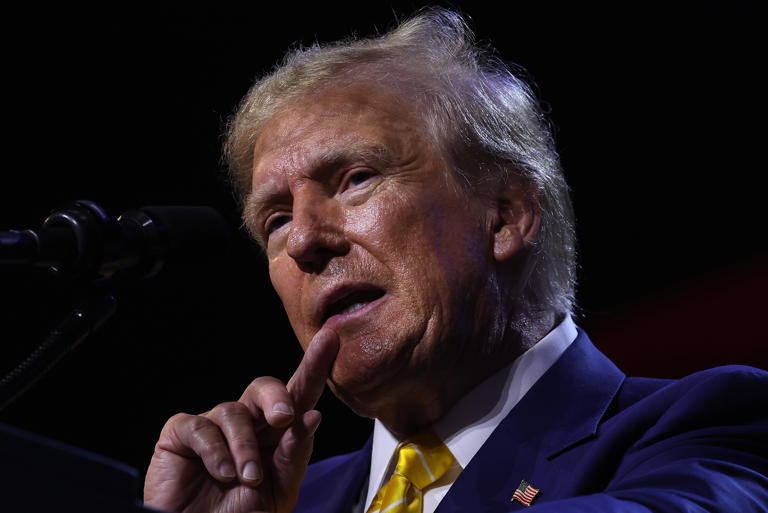The latest polling data from Florida paints a vivid picture of the political landscape as former President Donald Trump and President Joe Biden gear up for what promises to be a contentious rematch of the 2020 presidential election. In a head-to-head matchup, Trump holds a narrow lead over Biden, with 50 percent of the vote compared to Biden’s 46 percent. This close margin mirrors the outcome of Florida’s 2020 presidential election, highlighting the state’s significance as a battleground in national politics.
As both Biden and Trump emerge as the presumptive nominees for their respective parties in the 2024 presidential race, the stage is set for a fierce battle for the presidency. Despite Biden’s recent primary wins, the race appears to be tightly contested, with Trump retaining significant support among Republican voters.
However, Biden’s lead over Trump has slightly widened according to polling averages from VoteHub, where he currently holds a slight edge of 46.3 percent to 46.1 percent. This shift comes amidst Trump’s recent legal troubles, including his conviction on 34 counts of falsifying business records, marking the first instance of a former president with a felony record in American history.
In the context of Florida’s political landscape, the state has transitioned from being a key swing state to leaning more towards Republican dominance in recent years. Governor Ron DeSantis’s resounding re-election victory in 2022 underscored the state’s shift towards the GOP, setting the stage for a challenging environment for Democratic candidates.
The Fox News survey, conducted among 1,075 registered Florida voters, offers valuable insights into the sentiments of the electorate. Notably, Trump’s four-point lead over Biden stands in contrast to the wider margin predicted by other polling averages, suggesting varying perspectives within the electorate and the potential for shifts in voter sentiment as the election approaches.
When third-party candidates are included in the polling data, such as Robert F. Kennedy Jr., Jill Stein, and Cornel West, Trump’s lead expands to seven points. This underscores the potential influence of independent candidates on the electoral landscape and the complexities of voter preferences in a diverse political environment.
The demographics of support for each candidate reveal distinct patterns, with Biden garnering strong backing from Black voters, independents, college graduates, and urban residents, while Trump enjoys support from white evangelical Christians, rural voters, and those without a college degree. Understanding these demographic trends is essential for both campaigns as they strategize and mobilize their respective voter bases.
Looking ahead, the upcoming party conventions in July and August will officially confirm Trump and Biden as their respective party nominees. American voters will then cast their ballots on November 5, determining the outcome of what promises to be a closely watched and highly contested presidential election.
